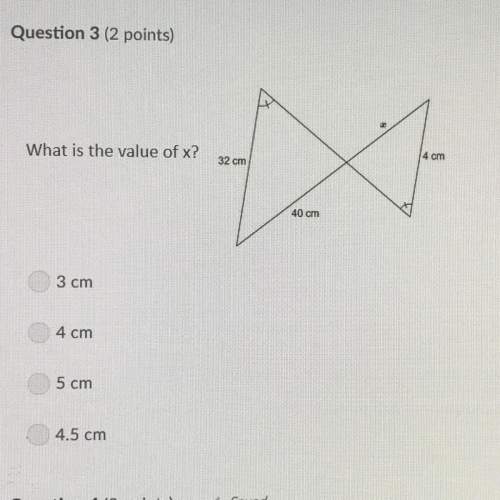
Mathematics, 04.08.2020 23:01 Zhodges5020
Take a coin with P(H) = 1/n and toss it until you see (n +1) many H's for the first time. Let Xn be the number of times we observe two successive H's. For example, suppose n = 5, you wait for the sixth H, and the sequence of tosses are HHHTTHTTHH, then Xn = 3 because there are 3 times that we observe two successive H's. Required:a. Find lim P(Xn >= 2). n→ [infinity] b. Now suppose P(H) = 1/n^2 and, as before, toss it until you see (n +1) H's for the first time. Let Xn be the same as before. Find the exact expression of P(Xn = 0) and compute lim P(Xn = 0). n→ [infinity]

Answers: 1
Another question on Mathematics

Mathematics, 21.06.2019 15:00
Answer this question, only if you know the answer. 30 points and brainliest!
Answers: 1

Mathematics, 21.06.2019 15:30
Amerchant has coffee worth $60 a pound that she wishes to mix with 50 pounds of coffee worth $90 a pound to get a mixture that she will sell for $70 a pound. how many pounds of the & 60 coffee should be used?
Answers: 3

Mathematics, 21.06.2019 22:00
Select the conic section that represents the equation. 3x2 + 3y2 -2x + 4 = 0
Answers: 2

You know the right answer?
Take a coin with P(H) = 1/n and toss it until you see (n +1) many H's for the first time. Let Xn be...
Questions


Mathematics, 22.10.2020 21:01

History, 22.10.2020 21:01

English, 22.10.2020 21:01



Mathematics, 22.10.2020 21:01

History, 22.10.2020 21:01

Biology, 22.10.2020 21:01



Mathematics, 22.10.2020 21:01



English, 22.10.2020 21:01

Mathematics, 22.10.2020 21:01

Mathematics, 22.10.2020 21:01

Mathematics, 22.10.2020 21:01





